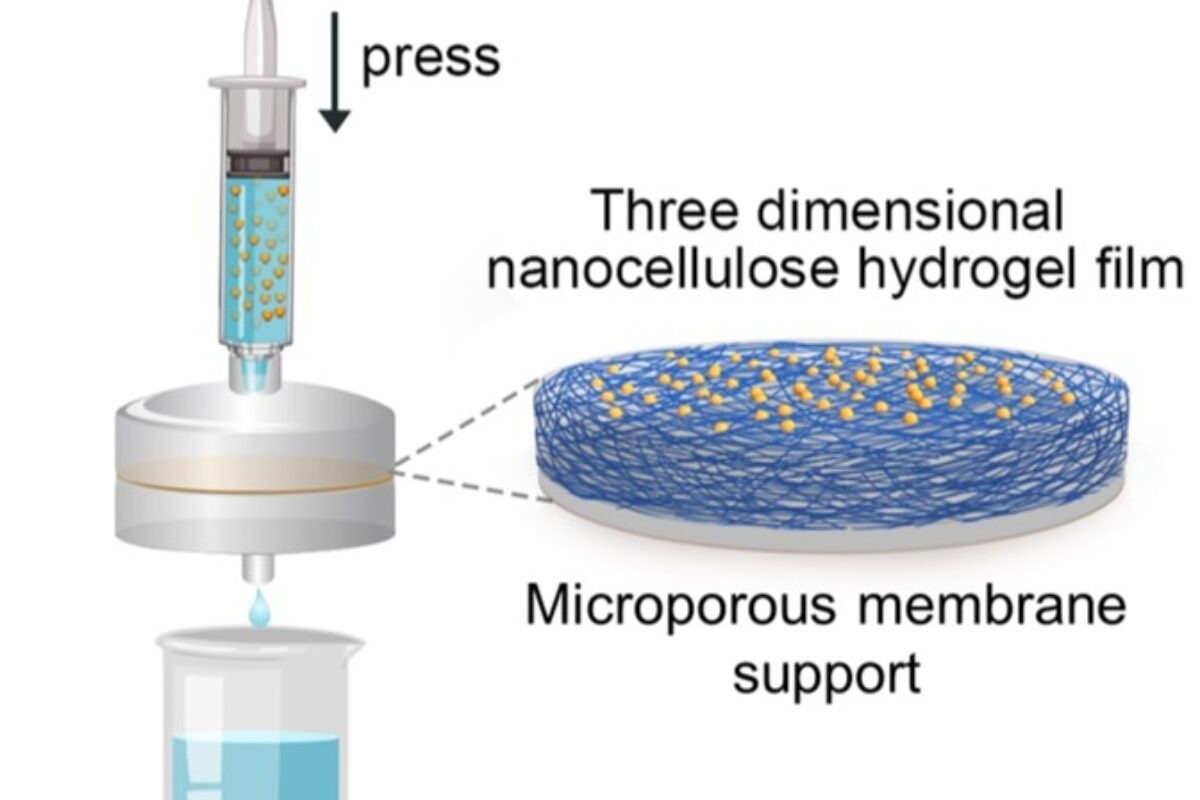Over 2 billion people, constituting approximately a quarter of the world's population, currently lack access to clean drinking water. Researchers at The University of Texas at Austin have developed a new, portable, and cost-effective water filtration solution with the goal of addressing this global challenge.

Image Credit: The University of Texas at Austin
The innovative system involves collecting contaminated water using a syringe, which is then injected into a hydrogel filter capable of removing nearly all tiny particles. This solution not only outperforms existing commercial options in terms of cost, simplicity, effectiveness, and sustainability but also empowers users to easily decontaminate water from nearby streams and rivers, making it suitable for consumption.
The pressing concern of particle-polluted water, particularly in remote and underdeveloped regions where people frequently rely on contaminated water sources for consumption, demands immediate attention and recognition. Our system, with its high efficiency in removing diverse types of particles, offers an attractive yet practical solution in improving freshwater availability.
Guihua Yu, Professor, Materials Science, Walker Department of Mechanical Engineering and Texas Materials Institute, Cockrell School of Engineering
The study was published in the journal Nature Sustainability.
Current portable water filtration solutions for tiny particles primarily include filter paper and microporous membranes. Research indicates that these devices filter approximately 40% and 80% of particles larger than 10 nm, respectively. In contrast, the newly developed system captures nearly 100% of these particles.
Constructed from affordable, sustainable, and easily accessible materials, the main innovation of this system lies in an interwoven network of nanocellulose fibers that effectively capture particles as the purified water flows through.
The user needs to utilize the syringe at the nearest water source, extract the water, and inject it through the filter. The system autonomously handles the rest, generating clean and drinkable water.
The filter system underwent testing with various water sources, including muddy water, river water, and water contaminated with microplastics. The biodegradable hydrogel films proved effective and can be reused up to 30 times before requiring replacement.
The research team has assessed the technology using syringes with capacities as large as 1.5 l, addressing approximately 40% of an individual's daily drinking water requirements. Their future plans involve further development of the technology to scale it up to address global drinking water needs.
Motivated by one of the United Nations' Sustainable Development Goals aimed at enhancing global drinking water standards and sanitation, the researchers embarked on this project.
The reality is a large percentage of the world’s population lacks access to safe drinking water, even in places where fresh water sources are available. There is an urgent need for simple, universal, and efficient materials and devices for purifying particle-contaminated water, which should be able to help people around the world obtain clean water.
Chuxin Lei, Study Lead Author and Graduate Student, Cockrell School of Engineering
Team members involved in the initiative also include collaborators from Northeast Forestry University, Shanghai Tech University, and Tsinghua University in China.
Journal Reference:
Jiang, M., et al. (2024). A bio-based nanofibre hydrogel filter for sustainable water purification. Nature Sustainability. doi.org/10.1038/s41893-023-01264-9